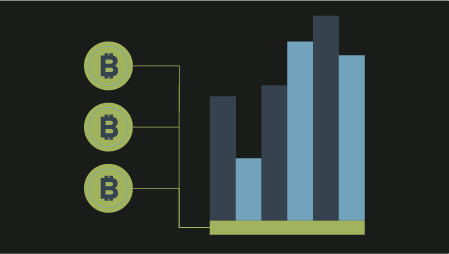Ready to learn Insurance Analytics Training? Browse courses like Insurance Analytics Training developed by industry thought leaders and Experfy in Harvard Innovation Lab.
Money and technology often go hand-in-hand. It is cyclic, invest money in productive technology and it rewards with more money. The financial sector received a big boost due to technological integration. Banks revealed during this amalgamation and now, the insurance sector has got a taste of the nectar generated by churning Finance and Technology (FinTech). As a result, transaction value in Indian FinTech market is expected to show an annual growth rate (CAGR 2017-22) of 18.8%.
Listed below are seven ways in which FinTech is impacting the insurance industry.
-
Online Marketplace
The Indian insurance sector had been a sleeping giant as far as technology was concerned. From purchasing a policy to raising a claim, the process was time consuming, resource driven, and paper intensive. Technology has addressed these concerns and awakens the giant.
The online environment is no longer alien to consumers as well as brands. Insurance providers are meeting insurance seekers in the online marketplace. They speak the same language and hence communicate quickly. Dealing with the claim process used to be a tedious affair, it took weeks to receive the claim amount. In today’s tech-savvy age, insurance claims can be settled within a day, if not hours.
-
Exponential Growth
FinTech has created an ecosystem which is conducive for exponential growth. Customers are used to purchasing t-shirts online. FinTech has made it possible to replicate, if not better, this consumer experience in case of insurance. A few clicks and you can avail your car insurance instantly.
FinTech has enabled productive user interface, glitch-free user journey, and streamlined back-end processes. This has changed the way insurance as a product, as a service, and as an industry is perceived by consumers.
-
Convenience Matters
Constant innovation propels brands ahead in the competition. When it comes to online business, e-commerce sites are redefining themselves to meet customers’ demand for a simple yet engaging interface.
FinTech helps insurance companies to create state-of-the-art websites and mobile apps to keep pace with leading e-commerce sites. Convenience is a top priority for e-commerce brands and FinTech will assist insurance providers to reduce barriers faced by customers during their online purchase journey.
-
Customized Pricing
Insurance premiums are traditionally priced based on certain generic factors. For example, car insurance premium depends upon car’s make, model, age, location, etc. With technology, insurance companies can access data that will shift the premium pricing model from generic to specific.
Thus, a driver who is cautious doesn’t speed much, and travels a route which is not prone to accidents, will pay less premium compared to a rash driver who often takes his car on long trips. Overall, FinTech will help in risk assessment and customized policy pricing.
-
Integrating Technology
Technology integration must be holistic, not individualistic. Customers interact with online insurance providers via their website or mobile app, however, the back-end processes related to them also need to be injected with advanced technology.
From customer acquisition to customer servicing, technology can increase efficiency and lower costs. The entire insurance ecosystem needs an upgrade as far as technology is concerned and FinTech is playing a key role in integrating technology across functions.
-
In Trend
Internet of Things (IoT), Big Data & Analytics, and Blockchain technology are buzzwords associated with insurance. IoT enables physical objects to share data. Just as telematic devices provide data pertaining to a driver’s profile, fitness trackers will give insights into a person’s health profile which can be analyzed to arrive at tailored health insurance quotes.
Big Data & Analytics aid precise customer profiling which facilitates customized marketing and cross selling. Structured and secured record keeping will be possible due to Blockchain technology which is also useful in ensuring transparency, detecting fraud, reducing redundancy, and increasing productivity.
-
Breaking Barriers
By going completely digital, insurance companies are no longer confined by geographical barriers. This reduces operational costs and the cost advantage can be transferred to the customers. Insurance companies can explore untapped markets by using technology as a vehicle which will be fueled by data and innovation.
Meeting Expectations
InsurTech is creating its own space within the FinTech segment. Insurance companies will either create their own InsurTech infrastructure or seek partners who can provide the needed technological support to make sure that the entire insurance cycle is revamped to suit the digital consumer.
Insurance will be more explorative and customer friendly. Advanced technology will change the traditional approach, both in terms of products and services offered as well as how users perceive insurance. Long term ideology of insurance will be challenged by short term, almost on demand, insurance products. 75% of the non-life insurance business is expected from online channels by the end of this decade and InsurTech will play a huge role in meeting these expectations.




